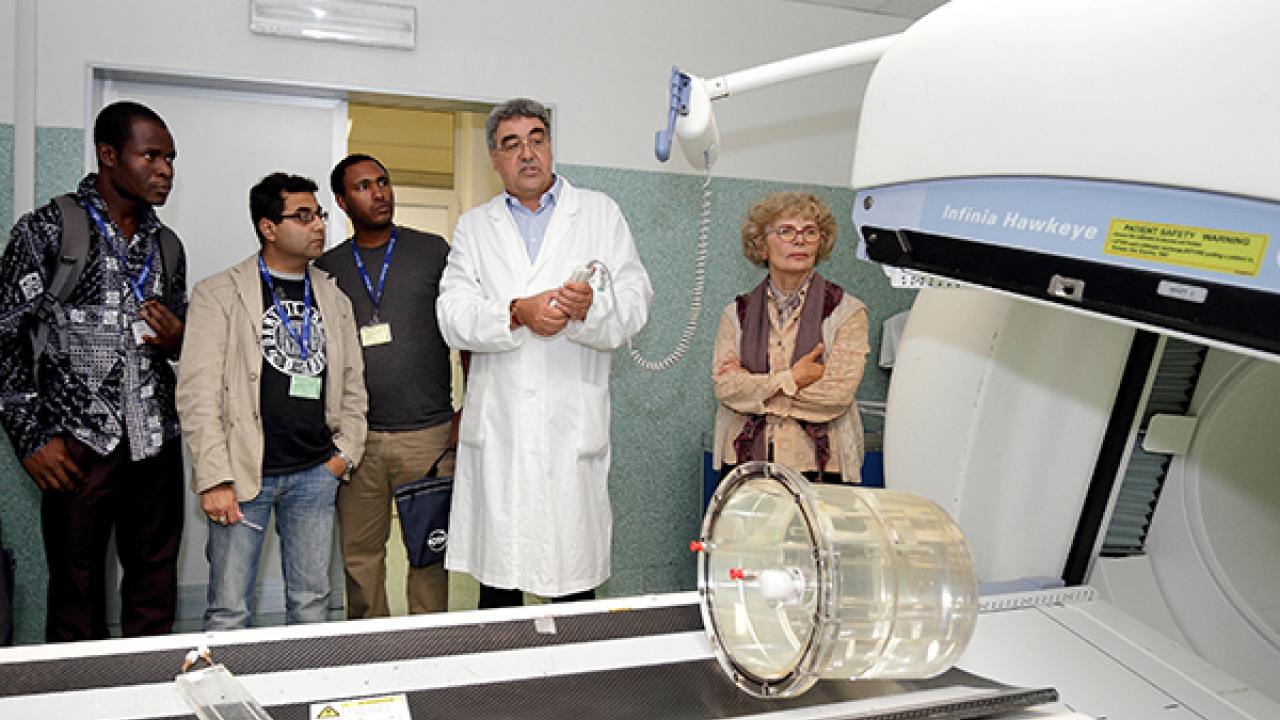
The field of medical physics plays an integral role in diagnosing and treating life-threatening conditions such as cancer. Yet in the developing world, where the cancer burden is rapidly increasing, medical physicists are scarce. In 2014, ICTP took steps to address this shortage by inaugurating its medical physics master’s degree program. But its medical physics efforts go back much farther than that, thanks to a series of workshops and courses that it has been organizing for more than 30 years.
Now, in 2016, the International Day of Medical Physics, which takes place on 7 November with the theme “Education in Medical Physics – the Key to Success”, provides an opportunity to reflect on ICTP’s achievements in the field.
ICTP’s Master of Advanced Studies in Medical Physics (MMP) program is unique for one very important reason, according to MMP coordinator Renato Padovani, a medical physicist himself who headed the medical physics department at the University Hospital Santa Maria della Misericordia in Udine for nearly 40 years. “Ours is the only international program in the world that educates and trains medical physicists from developing countries,” Padovani says.
The two-year course, which includes a year’s clinical residency at participating hospitals, recently graduated its first cohort of students--13 medical physicists from 11 developing countries. The program is run jointly by ICTP and the University of Trieste, with support from ICTP’s UN sponsor, the International Atomic Energy Agency (IAEA).
“There are no masters courses to prepare these kinds of scientists in many developing countries,” explains ICTP scientist Luciano Bertocchi, who has coordinated the Centre's medical physics activities for years and was the driving force behind the creation of the MMP.
“We expect that our graduates can go back to their countries and increase the quality and level of patient care in hospitals. I think that medical physicists have a crucial role in diagnostic and therapeutic procedures in modern medicine,” says Renata Longo, a physics professor at the University of Trieste, and director of the MMP program.
At only three years old, the MMP program has already attracted international honors, reflecting the high regard with which the program is held. In June 2016, the American Cancer Society offered to provide two scholarships worth 60,000 Euro to help train students from Africa. The money supports an international initiative to assist Ethiopia in expanding the number of cancer centers in the country--bringing treatment closer to the population--and provide long-term training of cancer specialists.
Another recent MMP program achievement is its accreditation by the International Organization for Medical Physics (IOMP), the premier medical physics organization that fosters educational and professional development and promotes quality medical services for patients.
In January 2017, 22 new students will begin the next academic year of the MMP program. They will eventually join the hundreds of medical physicists trained by ICTP and its partners through the MMP and other activities (ICTP has held 20 medical physics conferences in the past 33 years, including 14 colleges of medical physics, 2 schools of medical physics for radiation therapy and several joint IAEA/ICTP advanced courses, training more than 1000 course participants). These highly trained practitioners can then work to make a better life for patients throughout the developing world.
In addition to the IAEA and the University of Trieste, the MMP is supported by a large network of scientific societies and clinical institutions represented by the IOMP, the European Federation of Organizations in Medical Physics (EFOMP), a Croatian oncology hospital and the Italian Society of Medical Physics (AIFM) through the relevant contributions of the Trieste hospital and other 18 Italian hospitals.
For more details, visit the MMP webpage.
















